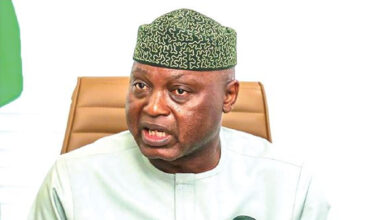Afenifere Criticizes Tinubu Administration For Lack Of Empathy Amid Nigerians’ Hardship

The socio-political organization Afenifere has voiced strong criticism toward President Bola Tinubu’s administration, decrying what it perceives as a lack of compassion and coherent strategy in addressing the pervasive hardship, insecurity, and hunger currently afflicting Nigerians. During a recent meeting held at the residence of its leader, Pa Ayo Adebanjo, in Isanya-Ogbo, Ogun State, Afenifere expressed dismay over the government’s apparent disconnect from the realities faced by its citizens.
Following the meeting, Afenifere issued a communique, signed by its Deputy Leader, Oba Oladipo Olaitan, and Deputy Secretary-General, Alade Rotimi-John, to highlight its observations on the state of the nation. The group described the social and economic landscape under the Tinubu administration as distressing, noting that Nigerians are increasingly burdened by harsh living conditions. Afenifere identified the persistent fuel price hikes as a key example of policies they believe are intensifying the suffering of Nigerians rather than alleviating it. According to the group, the frequent fuel price adjustments, alongside inflation, have pushed many citizens into deeper economic hardship.
Afenifere’s communique emphasized what it sees as the government’s “cavalier conduct of state affairs,” criticizing a perceived absence of a clear and consistent policy framework to address the socio-economic issues affecting the nation. This absence, according to Afenifere, not only reflects a lack of planning but also suggests a lack of empathy towards the struggles of everyday Nigerians. The group argued that, in times of national distress, citizens expect government leaders to prioritize relief measures, job creation, and security initiatives. However, the administration’s approach so far has instead left many Nigerians disillusioned.
One key aspect of Afenifere’s critique is its concern over the impact of government policies on food security. They argued that rising fuel prices have driven up transportation costs, which in turn affect the price of essential goods and services, placing a strain on families already struggling with limited income. This situation, Afenifere noted, has exacerbated hunger and contributed to a sense of hopelessness among citizens.
Security also featured prominently in Afenifere’s communique. The organization pointed to what it termed “unflagging insecurity” across the country, citing widespread reports of violent attacks, kidnappings, and communal conflicts. Afenifere expressed concern that despite promises of reform, the Tinubu administration has yet to implement a structured approach to combating the growing insecurity that has left many Nigerians feeling unsafe in their own communities. For Afenifere, the government’s lack of action on this front underscores its failure to address one of the most pressing issues facing the nation.
Afenifere further argued that empathy from leadership is not merely symbolic but a necessary element of governance, especially in challenging times. The group noted that when leaders engage with citizens’ experiences, they are better positioned to craft policies that genuinely address people’s needs. In this regard, Afenifere expressed frustration that the government appears to be enacting policies that, in their view, are out of touch with the struggles of ordinary Nigerians.
In conclusion, Afenifere’s communique serves as a call to action for the Tinubu administration, urging it to reassess its policy approach and prioritize the welfare of Nigerian citizens. The group expressed hope that the government would develop a coherent program aimed at alleviating the suffering of Nigerians and restoring a sense of security, stability, and economic opportunity. Afenifere’s message reflects a broader call from Nigerians for a government that is responsive, compassionate, and attuned to the realities on the ground. As socio-economic challenges continue to mount, the organization urged the Tinubu administration to demonstrate leadership through policies that foster social equity, economic relief, and a stronger commitment to public safety.



